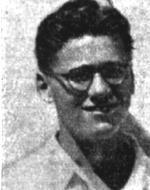Zvi, the son of Miriam and Moshe, was born on December 28, 1927, in Paris, the capital of France, where he was educated in an elementary school and continued to high school in Paris with the outbreak of World War II. September 1939), more than 330,000 Jews lived in France, and France surrendered to the Germans on June 22, 1940. The country was divided into two parts: the north, including Paris, occupied and controlled by the Germans, and the “independent” south of Vichy, German-sponsored puppets were openly anti-Semitic.In May 1941, the German authorities in occupied France, with the assistance of the local police, began mass arrests of Jews and their property. And in January 1942 the Germans invaded the “free” part of France, and in those areas arrests of Jews began, and the Drancy camp near Paris served as a concentration and transit station until the Jews were sent to death camps in the east. In July 1942, Zvi’s parents were taken to an extermination camp by Zvi, who was saved from the house by a group of Jews living under Aryan names, and continued his studies even under the harsh conditions of the Nazi occupation. After graduating he worked as a radio technician. After the war, Zvi began to dream of a new life, and the idea of immigration to Eretz Israel fascinated him. On March 17, 1946, he boarded the Tel Hai ship, which was organized by the Haganah’s Mossad Le’Aliya, on his way to Palestine. When it reached the sea, the ship was discovered by a British reconnaissance aircraft and it was launched by a destroyer. A number of sailors boarded the ship, took control of it and forced it to reach the port of Haifa. The immigrants, who carried a Hebrew flag and a banner with the name of the ship, were forcibly removed to buses and taken to the detention camp at Atlit. A few weeks later, when he was released from the Atlit camp, Zvi was sent to the Youth Aliyah organization in the Ein Hahoresh farm, where he spent two years in the hachshara. This life had a life of complete change of values, his acquaintances remembered. He struggled with the difficulties of integration and absorption in the new country and passed everything under his control. Out of freedom of thought he came to know the pioneering, work and life in the kibbutz. He was quiet, a little closed inside, and a trusted friend. He loved to learn, and was always immersed in textbooks and science. In February 1948, at the end of his training in the youth group, Zvi joined Kibbutz Nirim in the Negev. Gradually he managed to integrate into the kibbutz in the coming months. Kibbutz Nirim is located near the Rafah-Gaza road (now Nir Yitzhak). This area was one of the main entrances to the Egyptian army that planned to enter the country. All the members of the kibbutz, including Zvi, were mobilized to defend the place. As expected, the day after the establishment of the State of Israel on May 15, 1948, Nirim was one of the first Hebrew settlements to be attacked by the Egyptians, together with Kfar Darom and Yad Mordechai.The Egyptian attack began in the morning with a Gaza artillery bombardment, The Egyptians retreated after a few hours, but seized a post near the kibbutz, and the Egyptians retreated, After the battle, Kibbutz Nirim was almost completely destroyed, leaving only the dining room where they lived Nir was still in his place at the cemetery in Nirim, where he was buried at the Nirim cemetery. Last “are Holocaust survivors who remained the last remnantOf their nuclear family (parents, brothers, sisters, sons and daughters) who experienced the Holocaust in the ghettos and / or concentration camps and / or in flight and hiding in Nazi occupied territories and / or fighting alongside members of the underground or partisan groups During and after World War II, they wore uniforms and fell in the ranks of Israel.
